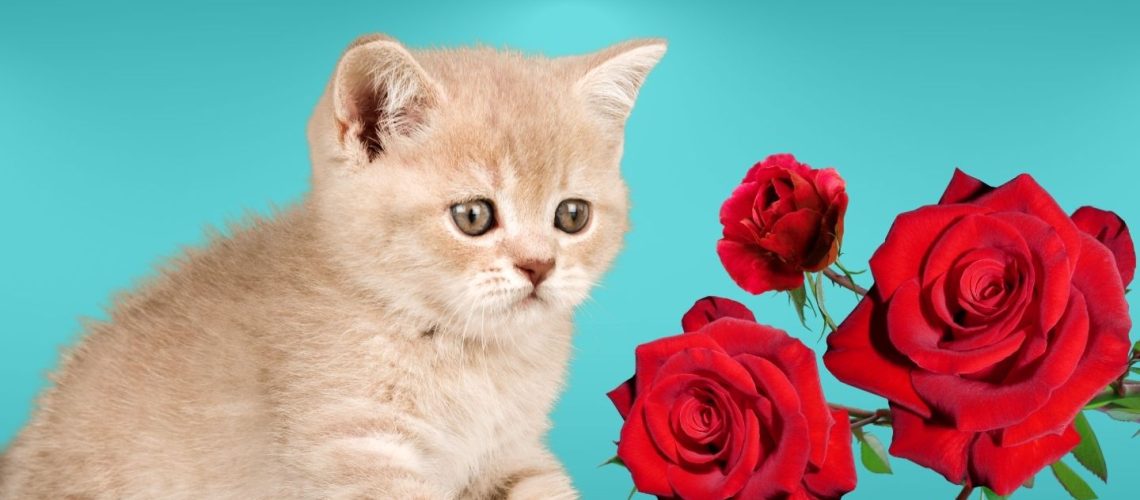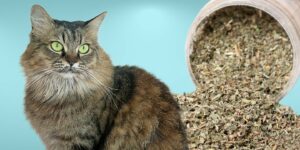Cats can eat roses, but it is not recommended. While roses are not toxic to cats, they are not a natural part of a cat's diet and can cause digestive upset. Furthermore, roses can also pose physical dangers to cats, such as injuries from thorns or choking hazards. It is crucial for cat owners to understand safe and unsafe plants for their pets and provide alternatives like catnip or cat grass for their feline friends.
Are roses toxic to cats?
Roses are considered non-toxic to cats according to the ASPCA's list of non-toxic plants for cats. However, non-toxic doesn't mean it is suitable for cats to consume. While roses won't poison cats, they can still cause digestive issues, injuries from thorns, or choking hazards.
Physical dangers of roses to cats
Thorns and potential injuries
One of the most apparent risks of cats eating roses is the potential for injury from thorns. Thorns can scratch or puncture a cat's mouth, throat or intestines, leading to pain, inflammation, and potentially more severe complications.
Choking hazards
In addition to thorns, roses can also pose a choking hazard if a cat ingests large pieces or entire flower heads. This can result in a blocked airway and difficulty breathing, potentially turning into a life-threatening situation.
Nutritional aspects of roses for cats
The carnivorous nature of cats
Cats are obligate carnivores, which means they rely on a diet rich in animal protein to thrive. Roses do not provide any essential nutrients that a cat requires for optimal health.
The lack of nutritional value in roses for cats
Roses offer no nutritional benefits to cats, and consuming plant material may lead to digestive issues, such as vomiting or diarrhea.
Alternative plants safe for cats
Catnip and its benefits
Catnip is a safe and enjoyable plant for cats, providing stimulation, relaxation, and promoting exercise through play.
Cat grass: a safer option for plant-eating cats
If your cat has a penchant for chewing on plants, provide them with cat grass, a safer and more digestible option that can satisfy their craving for greenery.
Spider plants and their appeal to cats
Another cat-safe plant option is the spider plant, which can be a visually appealing and enjoyable addition to your cat's environment.
Tips for preventing your cat from eating roses
Providing safe alternatives for your cat to chew on
Offer your cat safe plant options like catnip or cat grass to satisfy their need to chew on greenery.
Using deterrents such as citrus scents or bitter sprays
Discourage your cat from nibbling on roses by using deterrents like citrus-scented sprays or bitter-tasting substances on the leaves and flowers.
Creating a designated cat-friendly space away from roses and other potentially harmful plants
Establish a separate area for your cat with cat-friendly plants, allowing them a safe space to explore and satisfy their curiosity.
What to do if your cat ingests roses
Monitoring your cat for any signs of distress
Keep an eye on your cat after they have consumed roses and be alert for any signs of digestive upset, such as vomiting or diarrhea.
When to seek veterinary assistance
If your cat experiences severe symptoms, such as dehydration or signs of an injury from a thorn, contact your veterinarian for advice.
Home care and treatment options
For mild cases of digestive upset, ensuring your cat has access to fresh water and a quiet place to rest may help them recover. However, always consult your veterinarian for appropriate guidance.
Conclusion
While roses are not toxic to cats, they are not a suitable or safe option for your pet to consume. Cat owners must be proactive in providing cat-safe alternatives and monitoring their furry friends around roses and other potentially hazardous plants. By understanding the potential dangers of roses to cats and being vigilant, you can help create a safe environment for your cat to enjoy.






